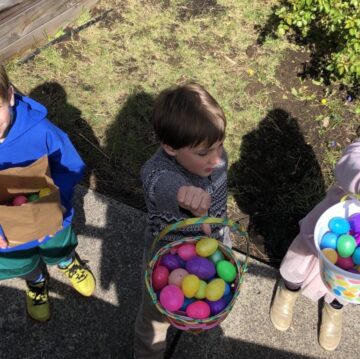Children & Youth
We deeply value the presence of all children and youth at Riverside and seek to be a vital part of their faith experience. We strive to be a church where children can find their voice, listen with their heart and learn social justice by serving others.


Church School & Nursery
Children join the worship service through “Children’s Time” with our pastor. Then, kindergarten through middle school grades are dismissed to engage in a lively Church School
curriculum, where art, dramatics, sensory experiences and ritual encourage discussion and
interaction. We explore Bible-based stories, with relevant references for today’s times. We
offer nursery services on Sunday mornings for newborns through age four. For more
information on Church school, contact Katie Cook.
O.W.L., Our Whole Lives
Our Whole Lives, or O.W.L., is a series of comprehensive sexuality curricula for children, teenagers, young adults, and adults published by the United Church of Christ and the Unitarian Universalist Association. OWL is led by a team of facilitators who are trained and lead on a rotating basis.
At Riverside, we offer O.W.L. for ages 7th-9th grades. The program is built around the values of justice and inclusivity, sexual health, responsibility and self-worth. It provides not only facts about anatomy and human development but also helps participants clarify their values, build interpersonal skills, and understand the social, emotional, and spiritual aspects of sexuality.
A mandatory parent education night is held before the classes and partial scholarships are available. Please call the church to sign up and ask for more details.



Camp Adams
Camp Adams is a forested 210-acre recreational retreat center 35 miles south of Portland, Oregon.
Every summer, youth who have completed 2nd grade and up look forward to a week at Camp Adams, which features a swimming spot, nature walks, a ropes course, crafts, all meals, nightly campfires, and an outdoor worship area.